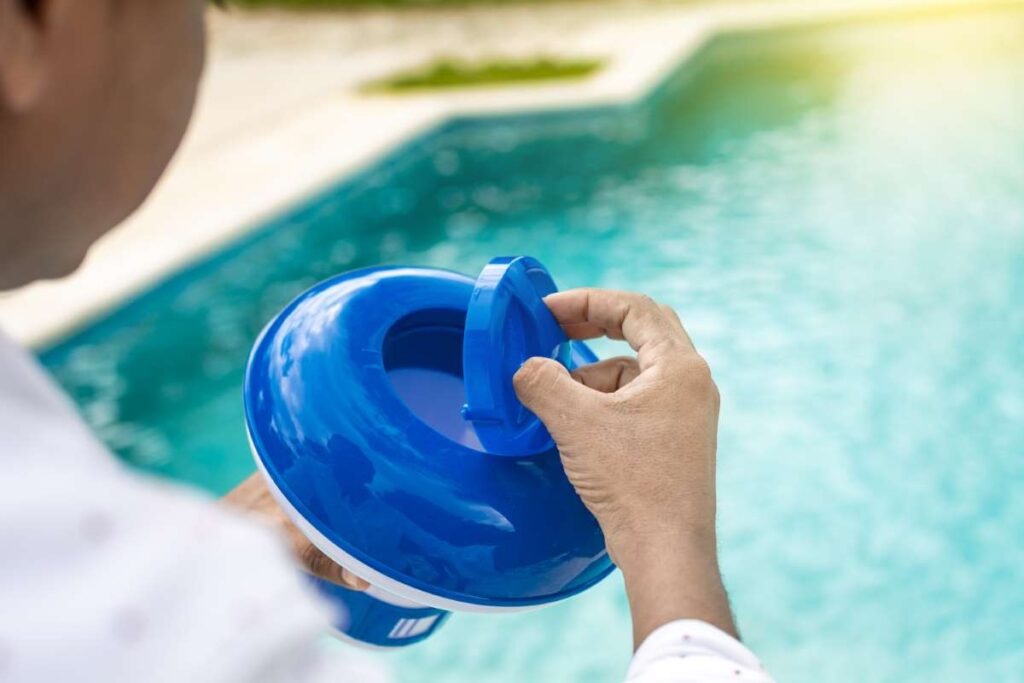Recycling Pool Liner Material: Tips and Best Practices
Explore effective strategies and best practices for recycling pool liner material to promote sustainability in pool maintenance while reducing waste.
This comprehensive blog post delves into the crucial topic of recycling pool liner material, providing valuable insights, tips, and best practices for pool service professionals and enthusiasts alike. As the demand for eco-friendly solutions increases, understanding how to recycle pool liners can help you reduce waste, save costs, and contribute positively to the environment. This article will cover the importance of recycling, methods for recycling pool liners, how to choose recyclable materials, and practical tips for implementation.
Introduction
The pool maintenance industry is often associated with luxury and leisure, but it also has a significant environmental impact, particularly in terms of waste generation. One of the most common sources of waste in pool maintenance is the pool liner. Traditionally made from various types of vinyl and other synthetic materials, pool liners can take centuries to decompose in landfills. However, as awareness around sustainability grows, recycling pool liners has become a vital practice for reducing waste and promoting eco-friendly initiatives in the industry.This blog post will explore how recycling pool liner material not only benefits the environment but also offers financial savings and enhances the reputation of pool service providers. We will discuss the current recycling options available, the implications of choosing recyclable materials, and provide actionable tips for implementing recycling practices within your pool maintenance business.
The Importance of Recycling Pool Liners
Recycling pool liners is more than just a trend; it is a crucial step towards sustainable practices in the pool service industry. Here are several key reasons why recycling pool liners is important:- Environmental Impact: By recycling pool liners, we can significantly reduce the amount of waste that ends up in landfills. According to the Environmental Protection Agency (EPA), vinyl materials make up a substantial part of landfill waste. Recycling these materials helps mitigate this issue.- Resource Conservation: Recycling helps conserve natural resources by reusing materials instead of creating new ones. This not only saves energy but also reduces the carbon footprint associated with manufacturing new pool liners.- Cost Efficiency: Many recycling programs offer financial incentives for businesses that participate. By recycling pool liners, pool service providers can potentially reduce disposal costs and even earn money through recycling rebates.- Enhanced Reputation: Sustainability is becoming increasingly important to consumers. By adopting recycling practices, pool service providers can enhance their brand reputation and attract environmentally-conscious clients. – Compliance with Regulations: Some regions are implementing stricter waste disposal regulations. Recycling pool liners ensures compliance with these regulations, helping to avoid potential fines or penalties.
Methods for Recycling Pool Liners
Recycling pool liners can be accomplished through various methods. Here are some common approaches:- Local Recycling Facilities: Many cities and towns have local recycling facilities that accept vinyl materials. Check with your local waste management authority to identify nearby facilities that accept pool liners. Some facilities even have specialized programs for pool-related waste.- Manufacturer Take-Back Programs: Some pool liner manufacturers have established take-back programs where they accept old liners for recycling. Contact your liner provider to inquire if they offer such a program, as this can be a convenient way to recycle your materials.- Upcycling Projects: Consider creative ways to repurpose old pool liners. For instance, cut the liner into smaller pieces to use as tarps or protective covers for outdoor furniture. This not only reduces waste but also provides practical solutions for everyday needs.- Donation: If the pool liner is still in decent condition, consider donating it to local schools, community centers, or non-profit organizations that may use it for craft projects or other purposes.- Specialized Recycling Companies: There are specialized companies that focus on recycling pool liners and other PVC materials. Research and partner with these companies to ensure proper recycling of the materials.
Choosing Recyclable Materials
Choosing the right materials is essential for effective recycling. Here are some best practices for selecting recyclable pool liners:- Material Composition: Look for pool liners made from recyclable materials, such as certain types of PVC. Research the product specifications or consult the manufacturer to understand the recyclability of the material.- Thickness and Durability: Thicker pool liners are often more durable and may be more suitable for recycling. Choose liners that maintain structural integrity, even after extended use, to ensure they can be recycled effectively.- Color and Treatment: Some liners are treated with coatings or colors that can affect recyclability. Opt for liners that are free from heavy treatments and dyes, as these may complicate the recycling process.- Certifications: Look for pool liners that come with recyclability certifications or eco-labels. These labels indicate that the product meets specific environmental standards, making it a more sustainable choice.
Practical Tips for Implementing Recycling Practices
Implementing recycling practices for pool liners requires planning and commitment. Here are some actionable tips for pool service providers looking to establish effective recycling processes:- Educate Your Team: Ensure that all employees understand the importance of recycling pool liners and the steps involved in the recycling process. Conduct training sessions to raise awareness and encourage participation.- Create a Recycling Plan: Develop a comprehensive recycling plan outlining the steps for collecting, storing, and transporting used pool liners. Assign responsibilities to team members to ensure accountability and efficiency.- Set Up Collection Points: Designate specific areas within your facility for collecting used pool liners. Make it easy for your team to dispose of liners properly by providing clearly labeled bins for recycling.- Partner with Local Organizations: Collaborate with local recycling facilities or environmental organizations to streamline the recycling process. They can provide guidance, resources, and support for your recycling efforts.- Monitor and Evaluate: Regularly assess your recycling program’s effectiveness by tracking the amount of waste recycled and any costs associated with disposal. Use this data to identify areas for improvement and make necessary adjustments.- Promote Your Efforts: Share your recycling initiatives with your clients and community through marketing materials, social media, or your website. Highlighting your commitment to sustainability can attract new clients and strengthen your brand.
Conclusion
Recycling pool liner material is a vital initiative that can significantly impact the pool maintenance industry and the environment. By prioritizing recycling practices, pool service providers not only contribute to waste reduction but also enhance their operational efficiency and appeal to eco-conscious consumers. The methods outlined in this blog post, combined with practical tips for implementation, offer a roadmap for successfully integrating recycling into your business model.In today’s world, where sustainability is paramount, taking the steps to recycle pool liners can set you apart in a competitive market. Embrace these practices, and you will not only do your part for the environment but also position your business as a leader in responsible pool maintenance. Start implementing these best practices today, and contribute to a greener future for the pool service industry!For more information on how to enhance your pool service business, explore our offerings such as
Pool Routes For Sale available throughout various regions, including
pool routes for sale in Texas. For any inquiries, feel free to
contact us and join the movement towards a more sustainable pool maintenance approach.



